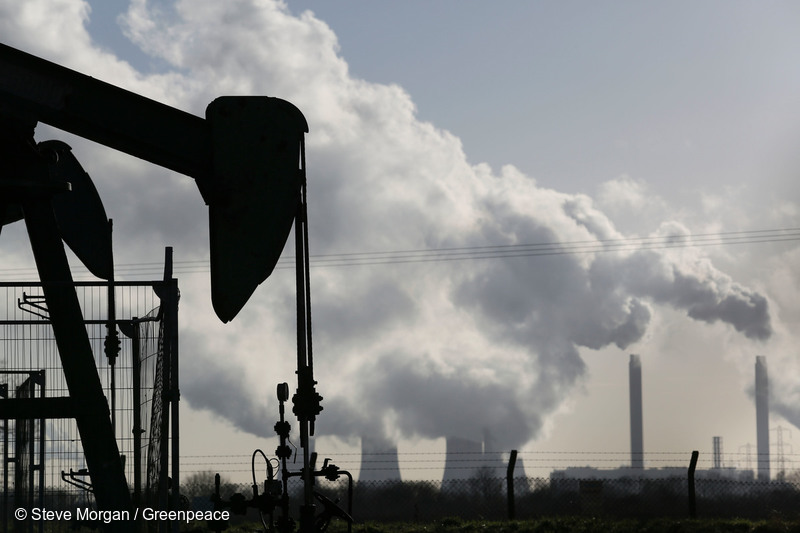Polluters set to cash in as EU summit mulls coronavirus recovery, Greenpeace analysis
Amsterdam – As European government leaders meet online on Friday to discuss EU plans for a coronavirus recovery, new analysis by Greenpeace Netherlands has found that polluting industries are expected to benefit from economic stimulus measures.
Gas and oil companies, airlines, carmakers, and other polluting industries are cashing in thanks to bailouts and other forms of state aid, but also tax relief mechanisms, cuts on excise duties, and changes in regulation, according to the analysis.
Greenpeace calls for the creation of a green recovery watchdog, governed by the European Commission, to ensure national and EU economic packages are in line with the Paris climate agreement and other environmental commitments, and that they protect people’s livelihoods and fundamental rights.

“Politicians have been banging on about the importance of a green and just recovery since the beginning of the pandemic. But they continue to throw public money at toxic industries and weave safety nets that allow polluters to survive. By doing so they are feeding an even bigger climate crisis. Instead, a new European watchdog should ensure every euro is invested in a future-proof economy, with strong environmental and social conditions for polluters like airlines and carmakers, and no public money for gas, oil and coal.”
Georgia Whitaker, Greenpeace climate campaigner.
While most of the approximately €4 trillion [1] in new money for the recovery is expected to go to national state aid schemes, with no meaningful environmental conditions, the analysis also explores a series of less visible measures, which also benefit polluters.
These include taxation, non-tax fiscal support, monetary tools and different kinds of regulatory support. In each of these four categories, Greenpeace found evidence of deliberate or accidental support for fossil fuels and other polluting industries.
Greenpeace has also proposed a checklist of measures that national governments and the EU should follow to encourage a green and just recovery, including:
- strong environmental and social conditions for bailouts,
- exclusion of the fossil fuels sector from subsidised public loans and central banks’ quantitative easing programs,
- protection of environmental regulations,
- transparency for Covid-19 recovery measures.
– ends –
Note:
[1] The €4 trillion is made up of €3.4 trillion in earlier recovery packages, and the proposed Next Generation EU instrument, worth €750 billion. This is the equivalent of more than 30% of EU GDP, or over €9,000 per European citizen.
Contacts:
Juha Aromaa – Greenpeace climate communications: +358 50 369 6202, juha.aromaa@greenpeace.org
Georgia Whitaker Hughes – Greenpeace climate campaigner: +44 797 136 7184, georgia.whitaker@greenpeace.org
For breaking news and comment on EU affairs: www.twitter.com/GreenpeaceEU



